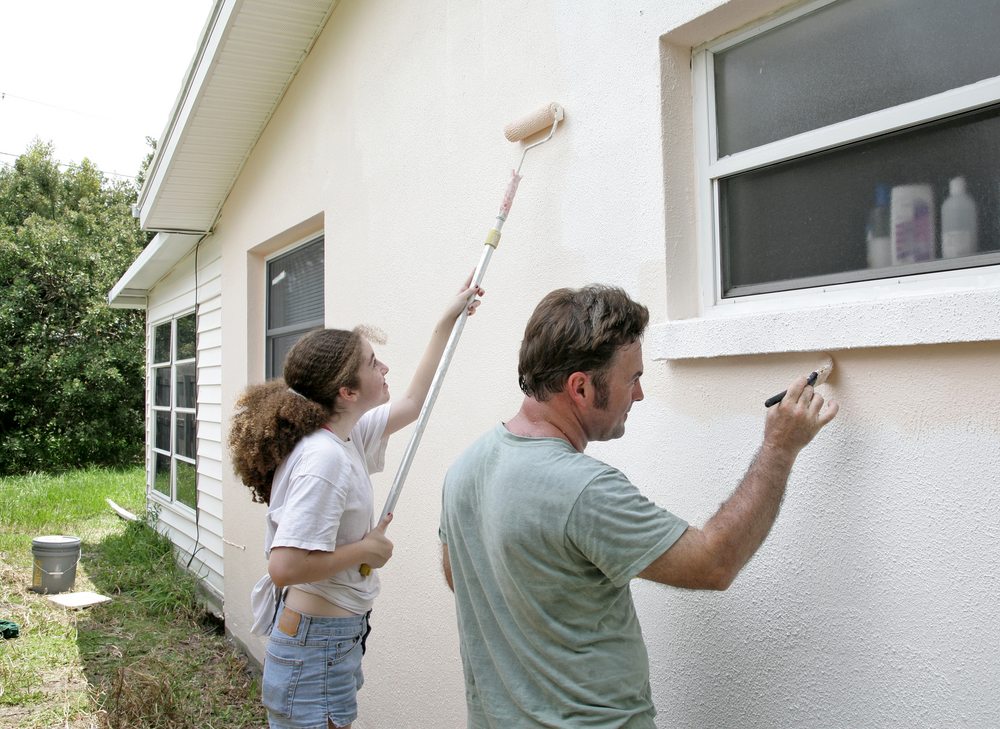When was the last time you painted the outside of your home? Especially with houses that have vinyl siding, many homeowners choose to leave the exterior “as is”. But even if the siding looks okay, that doesn’t mean your home wouldn’t benefit from a good coat of paint. Indeed, few DIY projects are as important as exterior painting and the caulking and filling that goes with it. They are your home’s first line of defense against the wind, rain, and snow. And when you take a closer look at that siding that seems “okay”, you’ll probably spot more damage and flaws that you expected.
Not only will your home be better protected by a new coat of paint, it will look great too, which adds to its curb appeal when it comes time to sell.
5 Tips for Exterior Painting
Here are a few ways to make sure you get the best results from painting the outside of your home:
1. Safety First
You’ll probably need to get up on a ladder at some point during the project, so remember to do so safely. Make sure the ladder leans well into the wall and tie it off whenever possible. Even when it is tied, don’t lean too far to one side or another when working on the ladder.
2. Surface Preparation
As with any paint project, the better the surface preparation, the better the final finish. You’ll need to scrape, brush and/or power-wash all surfaces to get rid of dirt, chalky residue and grime. You can paint over old paint surfaces as long as they are properly adhered to the surface below. Fill in any holes with exterior-grade putty and sand it after curing to make sure all surfaces are level.
3. Use the Best materials Possible
Exterior paint is subject to wide ranging temperatures and weather, so its pays to buy quality paint. Exterior surfaces can be rougher on brushes and rollers too.
4. Paint From the Top Down
Look for the highest point on your home that needs painting. That’s where to start – and then work your way down.
5. Choose the Right Times
Direct sunlight, wind and cooler temperatures are the enemy of a good exterior paint job. The sunlight will dry the paint too quickly, which will make it difficult or impossible for you to apply it evenly. Wind carries dust and debris that sticks to wet paint. And many paints don’t work well in temperatures below 10 degrees Celsius.
Bonus Tip: Talk to the people at your local paint store. They’ve done it before and they will be able to offer more valuable painting tips and information that may be particular to your neighbourhood and location.





